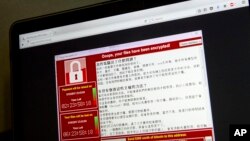The world is inevitably growing increasingly digitalized. Today, some seven billion digital devices are connected to the Internet of Things. Next year, that number is expected to rise to 22 billion, according to the Unite Nations.
Advancements in cybertechnology can bring enormous benefits. And yet, our increasing reliance on these technologies makes us vulnerable to cyber-crime.
“International law applies in cyberspace and offers guidance and norms on how states can act responsibly,” said U.S. Permanent Representative to the UN, Linda Thomas-Greenfield. “That includes an expectation that States investigate and mitigate malicious cyber activity emanating from their territory and aimed at the critical infrastructure of another.”
“We have seen a significant spike in ransomware attacks on hospitals and health care organizations here in the United States, causing disruptions to everything from prescription refills to vital surgeries,” she said. “And yet, despite the expectation that States investigate ransomware actors on their soil, some members – most notably, Russia – have looked the other way, or worse, empowered those malicious actors.”
Several other countries also sponsor malicious cyber-attacks. One such is the Democratic People’s Republic of Korea, or North Korea. UN investigators found that the DPRK is most likely responsible for 17 cyber-attacks last year that netted the thieves some $750 million.
“Those heists follow 58 similar suspected DPRK cyber-attacks in the six years prior, with cryptocurrency companies counting some $3 billion in losses,” said Ambassador Thomas-Greenfield.
“And let’s be clear: It’s not just that this money was stolen. Revenues from the DPRK’s cyber operations, including work to steal or launder foreign currency directly funds its unlawful WMD and ballistic missile programs.”
Increasingly, non-state actors are also raising the stakes. “Previously, this technology was prohibitively expensive to acquire, and prohibitively complex to develop and deploy,” said Ambassador Thomas-Greenfield. “Now malicious actors can readily and easily purchase powerful capabilities at an increasingly low.”
“This growing marketplace of more affordable, accessible, and advanced commercial cyber tools, including commercial spyware, is already changing the cyber landscape – making it harder for the international community to hold parties accountable for bad behavior, and introducing new instability to cyberspace,” she said.
“There is no separating what happens in cyberspace from what happens in the real world. The two are inextricably linked, and cyber security is international security,” said Ambassador Thomas-Greenfield.
“The United States is working with likeminded countries to highlight and condemn disruptive, destructive, and destabilizing behavior in cyberspace.”














